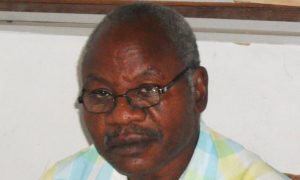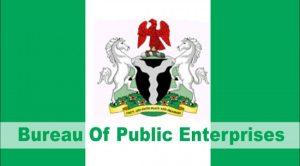The Liberation Party of Nigeria, (LiP) has rejected any attempt to fund payment of the N30, 000 minimum wage in Nigeria through privatisation of state owned enterprises. The new voice in the public sphere said in a statement titled “How Not to Fund the New Minimum Wage” that it had been awakened by media reports of the recommendation by a Presidential Technical Advisory Committee (PTAC) that, in order to raise additional revenue to pay the new salary, government should sell state-owned enterprises, especially in the petroleum, mining and solid minerals sector; agricultural resources such as the various river basin development authorities, media assets such as the NTA, Radio Nigeria, News Agency of Nigeria, Nigeria Film Corporation, stadia and concessioning of airports, among others.
The clear meaning of this approach to raising revenue, according to LiP, is privatisation of state owned assets built by public funds but which it says is an old route that has left the country with disastrous consequences. Apart from just enriching some members of the political class, most of the privatised companies were never turned around, said the party which completely ruled out sale of government assets such as the Nigerian National Petroleum Corporation (NNPC) on the ground of the importance of oil in the country’s development calculus.

LiP Chairman

Nigeria’s machine that carries out the auctioning
Professor Idowu Awopetu who issued the statement as Chairman of Lip questioned sale of government assets as a sustainable approach to raising the about N4.2 trillion said to be required to pay the new National Minimum Wage. As far as he is concerned, there are other frameworks such as commercialization that can make state-owned enterprises to be effective and efficient. “The issue is to have a robust and transparent governance that would fight corruption, thievery and outright looting of the treasury to preserve or utilize such funds for the benefit of all Nigerians”, said the Chairman who further argued that the way out is whittling down and aligning what he called unsustainable emoluments of politicians with general emolument so that over bloated emoluments do not consume upward of 20% of the national budget as they do now.
The party restated the view that, to generate additional revenue, “government should block the looting of the economy, reform the tax administrative system so that the rich can pay more tax; monetize oil receipts at N360.00-U$ to the government; reduce or eliminate waivers, incentives and exemptions thereby increasing revenue for government”. Calling for investing massively in various social programmes and implementing policies, it says that is how to change the structure of the economy from that of consumption to production. It, therefore, restated that money saved from fighting corruption, taxing conspicuous consumption of the rich, broadening the tax net be directed at providing mass private and public sector employment as well as the provision of basic needs to Nigerian workers. This would enhance their welfare rather than a one off sale of state-owned assets, goes the position.
Expressing its commitment to operating an economy in which the private sector will be allowed to participate in the economy as much as will be necessary, the Liberation Party stated its rejection of a situation whereby the role of the private sector shall at any point conflict with the need for social equality, welfare and national sovereignty.
Similarly, it frowns at speculated increasement of VAT from 5% to 7.5%, saying it would hurt the populace even as it may bring additional revenue to states. It did not forget to mention how raising vat would “ultimately discourage investment particularly at this point when diversification of the economy is crucial, and unemployment is very high”.
While conceding that the N30, 000.00 Minimum Wage would bring some instant relief to workers, the party does not see it as more than a far cry when compared with the N66, 000.00 monthly wage necessary in the context of the cost of living index in Nigeria. The workers would have some relief if government enacts policies that would return to providing quality education, quality health delivery and housing, among others, to workers and Nigerians in general, said LiP.
Anti-privatisation stance has been a major sentiment in Nigerian politics but only to turn into mere whispers recently as nearly everyone became campaigners for reform of an economy as unformed as Nigeria’s. Whether this statement marks a new turn remains to be seen.




























